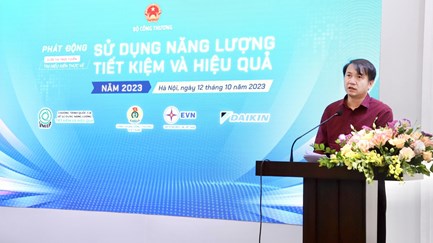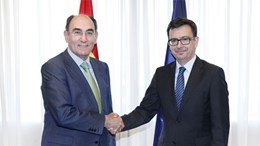Monday, 22/12/2025 | 17:13 GMT+7

On October 12, 2023, in Hanoi, the Energy Conservation Steering Committee Office (Ministry of Industry and Trade), in collaboration with relevant units, organized the launch ceremony of the online competition 'Study on energy efficiency and conservation in 2023'.
 Develop sales and marketing strategies for energy efficiency equipment and solution suppliers
Develop sales and marketing strategies for energy efficiency equipment and solution suppliers
 Enhancing capacity for Bac A Bank Officers in Risk Sharing Facility Implementation
Enhancing capacity for Bac A Bank Officers in Risk Sharing Facility Implementation
 Capacity Building for Program Implementing Entity
Capacity Building for Program Implementing Entity
 Promoting Energy Efficiency for Technical Staff of Brick and Ceramic Sector
Promoting Energy Efficiency for Technical Staff of Brick and Ceramic Sector
 Energy efficiency and sustainable development in textile sector
Energy efficiency and sustainable development in textile sector


























 Webinar 2: “Financial Support for Energy Efficiency Enterprises – Opportunities and Challenges”
Webinar 2: “Financial Support for Energy Efficiency Enterprises – Opportunities and Challenges”
 Vietnamese enterprises achieve green growth and cut costs through energy efficiency
Vietnamese enterprises achieve green growth and cut costs through energy efficiency
 Capacity Building for Program Implementing Entity
Capacity Building for Program Implementing Entity
 Enhance Energy Efficiency Knowledge for Managers of Cement Industrial Enterprises
Enhance Energy Efficiency Knowledge for Managers of Cement Industrial Enterprises
 Promoting Energy Efficiency for Technical Staff of Brick and Ceramic Sector
Promoting Energy Efficiency for Technical Staff of Brick and Ceramic Sector
 Capacity building for participating financial institutions of the VSUEE Project
Capacity building for participating financial institutions of the VSUEE Project